第39章 "ON THE MARGIN OF INTERNATIONAL LIFE"(3)
In 1906, therefore, along with parties of Hondurans, Salvadoreans, and disaffected Guatemalans, he began an invasion of that country and continued operations with decreasing success until, the United States and Mexico offering their mediation, peace was signed aboard an American cruiser. Then, when Costa Rica invited the other republics to discuss confederation within its calm frontiers, Zelaya preferred his own particular occupation to any such procedure. Accordingly, displeased with a recent boundary decision, he started along with Salvador to fight Honduras. Once more the United States and Mexico tendered their good offices, and again a Central American conflict was closed aboard an American warship. About the only real achievement of Zelaya was the signing of a treaty by which Great Britain recognized the complete sovereignty of Nicaragua over the Mosquito Indians, whose buzzing for a larger amount of freedom and more tribute had been disturbing unduly the "repose" of that small nation!
To the eastward the new republic of Cuba was about to be born.
Here a promise of adequate representation in the Spanish Cortes and of a local legislature had failed to satisfy the aspirations of many of its inhabitants. The discontent was aggravated by lax and corrupt methods of administration as well as by financial difficulties. Swarms of Spanish officials enjoyed large salaries without performing duties of equivalent value. Not a few of them had come over to enrich themselves at public expense and under conditions altogether scandalous. On Cuba, furthermore, was saddled the debt incurred by the Ten Years' War, while the island continued to be a lucrative market for Spanish goods without obtaining from Spain a corresponding advantage for its own products.
As the insistence upon a removal of these abuses and upon a grant of genuine self-government became steadily more clamorous, three political groups appeared. The Constitutional Unionists, or "Austrianizers," as they were dubbed because of their avowed loyalty to the royal house of Bourbon-Hapsburg, were made up of the Spanish and conservative elements and represented the large economic interests and the Church. The Liberals, or "Autonomists," desired such reforms in the administration as would assure the exercise of self-government and yet preserve the bond with the mother country. On the other hand, the Radicals, or "Nationalists"--the party of "Cuba Free"--would be satisfied with nothing short of absolute independence. All these differences of opinion were sharpened by the activities of a sensational press.
>From about 1890 onward the movement toward independence gathered tremendous strength, especially when the Cubans found popular sentiment in the United States so favorable to it. Excitement rose still higher when the Spanish Government proposed to bestow a larger measure of autonomy. When, however, the Cortes decided upon less liberal arrangements, the Autonomists declared that they had been deceived, and the Nationalists denounced the utter unreliability of Spanish promises. Even if the concessions had been generous, the result probably would have been the same, for by this time the plot to set Cuba free had become so widespread, both in the island itself and among the refugees in the United States, that the inevitable struggle could not have been deferred.
In 1895 the revolution broke out. The whites, headed by Maximo Gomez, and the negroes and mulattoes by their chieftain, Antonio Maceo, both of whom had done valiant service in the earlier war, started upon a campaign of deliberate terrorism. This time they were resolved to win at any cost. Spurning every offer of conciliation, they burned, ravaged, and laid waste, spread desolation along their pathway, and reduced thousands to abject poverty and want.